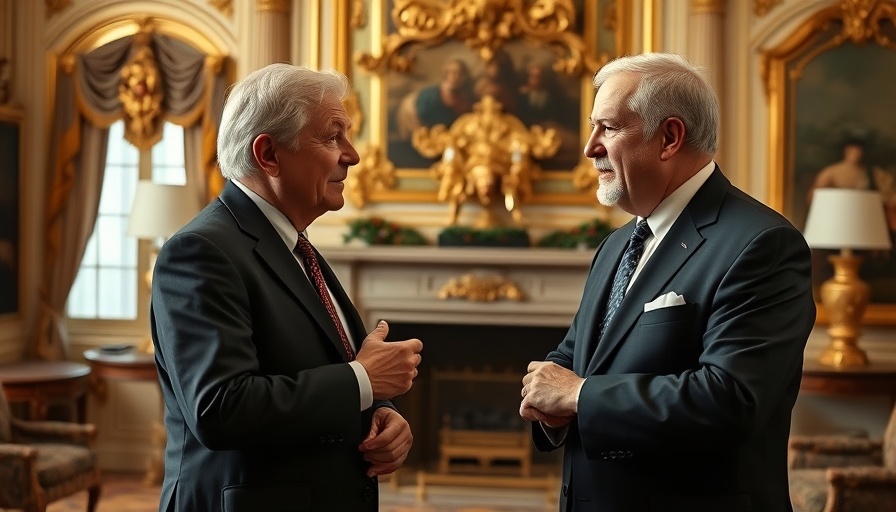
Trump's Caution: A Diplomatic Warning to Israel
Recently, former President Donald Trump publicly acknowledged a pivotal moment during his administration: his cautionary advice to Israeli Prime Minister Benjamin Netanyahu regarding Iran's nuclear negotiations. This revelation underscores a significant episode in U.S.-Israeli relations, illuminating the complexities of diplomacy in a high-stakes geopolitical landscape.
Understanding the Stakes: The Role of Nuclear Talks
At the heart of this issue lies the ongoing negotiations concerning Iran's nuclear capabilities. Trump emphasized to Netanyahu the need for Israel to avoid actions that could jeopardize these delicate talks. This warning serves as a reminder that international diplomacy is often a tightrope walk where the actions of one nation can dramatically affect the stability of others, particularly in volatile regions such as the Middle East.
The Broader Context: U.S.-Israeli Relations
Historically, the relationship between the United States and Israel has been characterized by strong support, especially when it comes to security matters. However, Trump's acknowledgment highlights the friction that can arise when perceived threats from states like Iran emerge. Relations can become strained not just from military actions but also from political decisions that could undermine collective security efforts.
Iran: A Complex Threat
Iran's nuclear ambitions have long been a subject of intense scrutiny and concern for both Israel and the U.S. Trump’s warning reflects a mutual understanding of the potential fallout if negotiations collapse. The prospect of a nuclear-armed Iran poses a significant risk, not only to Israel but to the entire region, potentially igniting a wider conflict.
Counterarguments: Diverse Perspectives on U.S. Intervention
Yet, there are divergent views on the efficacy of U.S. involvement in these negotiations. Some argue that the U.S. should adopt a more hands-off approach, allowing Israel to independently address its security concerns. Others believe that a coordinated effort is crucial for a sustainable resolution to the Iranian threat. This debate is at the core of varying perspectives on foreign policy and the responsibilities of the U.S. as a global leader.
Moving Forward: Insights into Future Diplomacy
As the international landscape continues to evolve, maintaining a delicate balance in U.S.-Israeli relations will be paramount. Trump's insights emphasize the necessity for transparency and communication in diplomacy. Future leaders will need to navigate these waters skillfully, understanding that the choices made today can influence regional stability for generations to come.
What Can We Learn?
This situation not only sheds light on the intricacies of international relations but also invites reflection on how individuals, particularly mission-minded Christians, can engage with these issues on a personal level. As advocates for peace and understanding, they are called to be well-informed about global events and to pray for wisdom, both in the political realm and in the lives of those affected by these policies.
 Add Row
Add Row  Add
Add 








 Add Row
Add Row  Add
Add 

Write A Comment